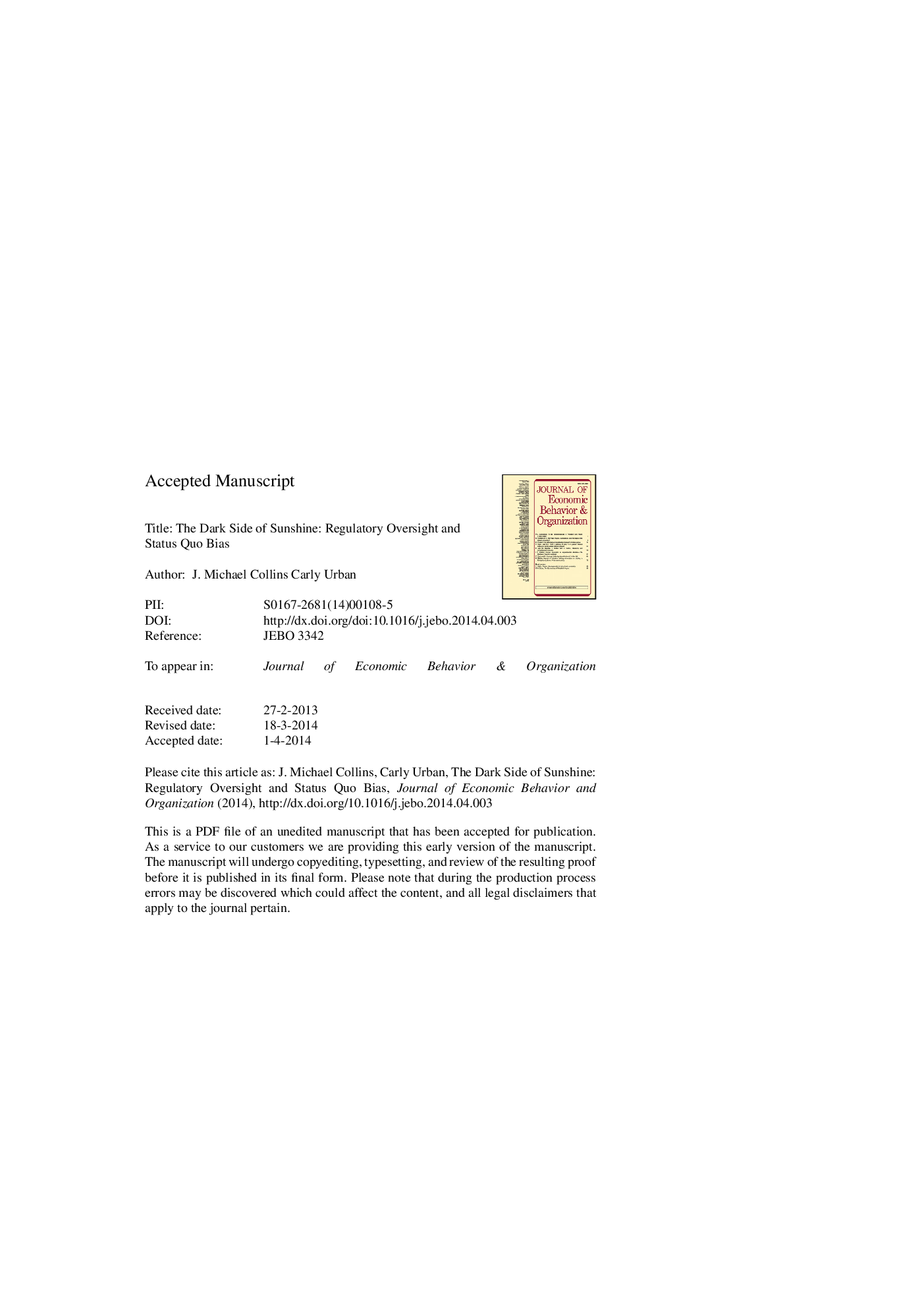| Article ID | Journal | Published Year | Pages | File Type |
|---|---|---|---|---|
| 10437649 | Journal of Economic Behavior & Organization | 2014 | 40 Pages |
Abstract
As the mortgage foreclosure crisis accelerated in the U.S. in the late 2000s, state-level policymakers implemented measures designed to protect consumers and stem the tide of foreclosures. One form of policy was simply to require lenders to report on foreclosure prevention activities. Such policies represented a shift from the status quo for mortgage loan servicing firms operating under incomplete information-doing nothing with non-paying loans while waiting for more information to be revealed-to either foreclosing on the borrower or offering the borrower a modification of loan terms. Using a difference-in-difference-in-differences empirical strategy, we exploit one policy implemented in Maryland for a subset of mortgage servicers and find evidence that firms perform more loan modifications, as well as file more foreclosures. Increasing foreclosure filings was contrary to the intent of the policy, suggesting that policymakers should be aware of how firms exhibit systematic biases, much like individuals.
Keywords
Related Topics
Social Sciences and Humanities
Economics, Econometrics and Finance
Economics and Econometrics
Authors
J. Michael Collins, Carly Urban,
